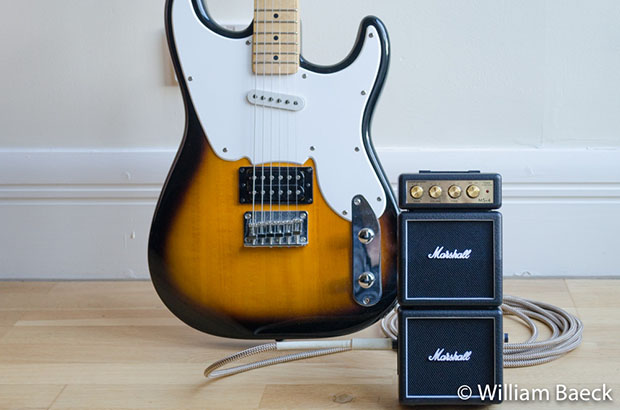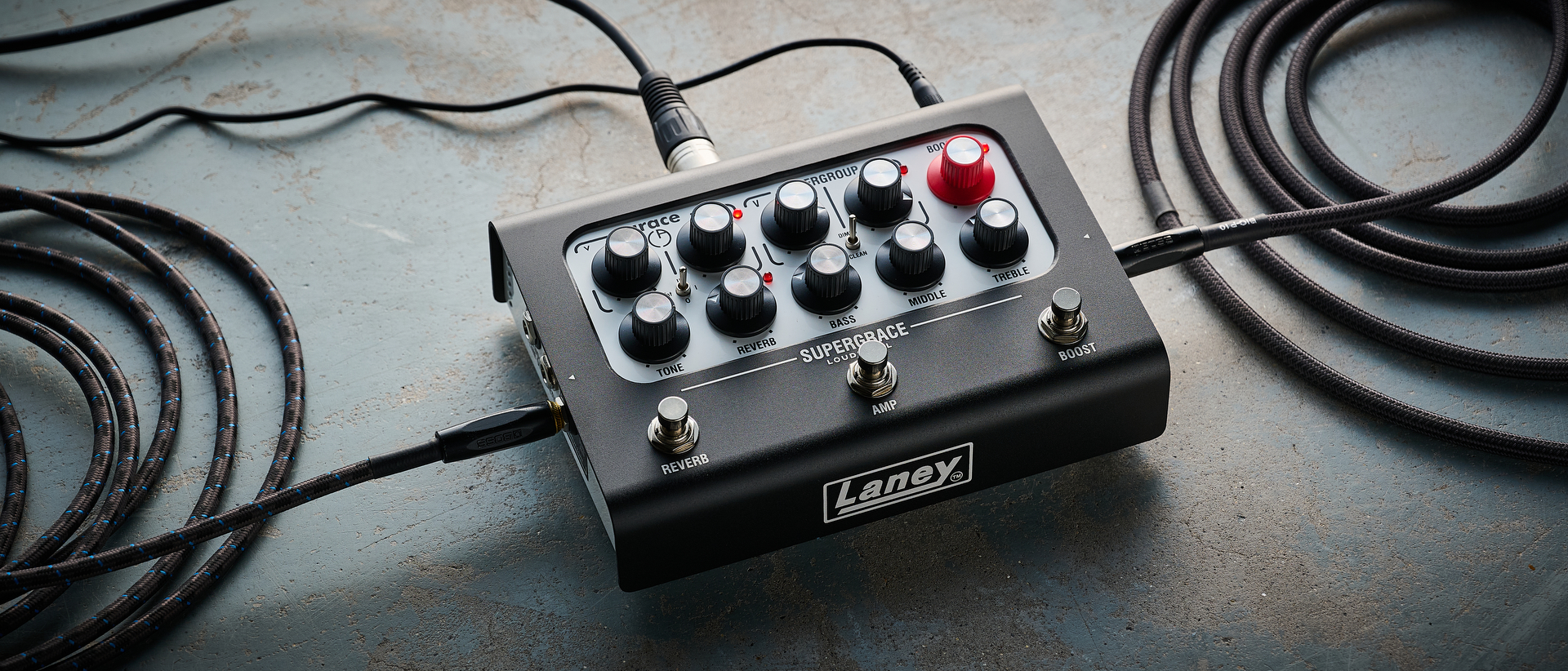The GAS Man: Your Guitar is Just One Link in the Tone Chain
All the latest guitar news, interviews, lessons, reviews, deals and more, direct to your inbox!
You are now subscribed
Your newsletter sign-up was successful

Today’s column is a public service announcement for toneheads.
When we think about tone, we typically start by focusing on the guitar.
All too often, though, that’s where we stop. It’s not surprising, after all we’re guitar players, not amp or mixing-board players. So it’s easy to think of the guitar as the core of our sound. But fixating on the guitar can make us forget that there are many links in that chain.
Today’s column is simply to remind you about those other links.
Think of a great tone you’ve heard—maybe it’s the late, great B.B. King’s or the live, great Eric Clapton’s.
The guitar is a huge part of their sound. But the operative word is part. And there are a lot of parts that make up that juicy, overdriven whole. When you’re listening to a guitarist you’re hearing not just the guitar, you’re hearing the end product of an entire chain of events.
With that in mind, here’s a list of what goes into the tone you hear; I’m sure you can think of other elements.
All the latest guitar news, interviews, lessons, reviews, deals and more, direct to your inbox!
Song/band/arrangement: The apparent tone of a guitar changes depending on what surrounds it. A Telecaster bridge tone that sounds clean, high, and steely with a country band would likely sound thin, reedy, and just plain silly with a three-piece deathcore group. The tone needs to suit the song, not just be a cool sound plastered on top of the tune. It’s not only about great tone, it’s about appropriate tone.
Guitarist: We all know guitarists who still sound like themselves even when playing through someone else’s rig. The flip side of this truism is that is by using a different approach you can get a different tone even with your usual rig and settings. A simple example: play closer to the neck or bridge. Result: very different tone.
Guitar: You know the drill on this one, each guitar is affected by the brand, make, model, woods, finish, hardware, pickups, settings, etc..
Pick: Don’t think something as small as a pick makes a difference? You can read my story here.
Strings: Gauge, brand, nickel round wound versus flat wound—all alter the timbre of the instrument.
Effects: Of course, these are specifically made to alter your tone, and the final sound produced depends on everything from the type of effect to the maker, settings, pedal order, even the components with which the effect is built.
Amp: Make, model, year, tubes and settings bias your sound one way or the other.
Venue: What sounds great at home might not sound the same on stage or in the studio. What does your garage, bar, theater, coliseum or studio sound like?
Microphone(s): If you’re miking up, did you choose an SM 57 or go straight into the board? There are a gazillion options out there.
Recording engineer/soundman: Regardless of how you hear your tone while you’re playing, if you have an engineer or soundman, he or she hears your initial sound their own way and adjusts accordingly. Think of them as a filter with a great sense of EQ.
Mixing board: Model, components and settings all add to the sonic mix.
Mastering media: For recorded music, is it mastered digitally or on tape?
Reproduction media: Are you listening to it live, or on vinyl, tape or digital? If tape, are you playing it on cassette or reel-to-reel? If digital, what format and compression options were used in the recording process?
Player: If you’re listening to a recorded guitar, are you hearing the final mix through a boombox, turntable, iPhone or the radio of your ’86 Honda Civic?
Speakers: Depending on whether it’s recorded or live, which stereo speakers, amp speakers, loudspeakers, ear buds or headset are you listening through? It’s bad enough when your favorite band’s sound is nearly demolished by listening to them through $5 ear buds. It’s even worse hearing them play great guitars live into great amps whose great tone is then blasted through crappy loudspeakers. Especially when you’ve just paid $45 per ticket plus a two-drink minimum for the privilege.
So here we are at the end of the chain. I’m not saying your guitar doesn’t matter. It does. Hugely. But think of your guitar in the context of the entire tone chain.
If you do, this chain might just free your sound.
William Baeck is a writer, photographer and hack guitarist living in London. You can check out his webpage at williambaeck.com and reach him on Facebook and Twitter.
